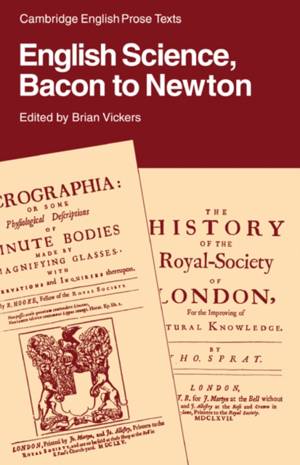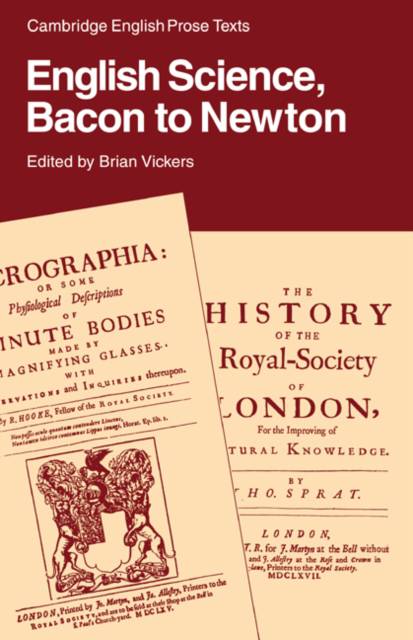
- Afhalen na 1 uur in een winkel met voorraad
- Gratis thuislevering in België vanaf € 30
- Ruim aanbod met 7 miljoen producten
- Afhalen na 1 uur in een winkel met voorraad
- Gratis thuislevering in België vanaf € 30
- Ruim aanbod met 7 miljoen producten
Zoeken
€ 85,45
+ 170 punten
Omschrijving
Seventeenth-century England witnessed an unprecedented flourishing of natural philosophy, inspired by Francis Bacon's call for a new science based on observation and experiment, to be carried out in collective research projects, whose findings would be communicated in clear language. This anthology documents the effect of Bacon's ideas in the remarkably fruitful period following 1660. It includes his sketch of a scientific research institute in the New Atlantis (1627), which inspired the founding of the Royal Society in 1662, as acknowledged by Thomas Sprat in its History, excerpted here. Bacon's plea for an appropriate language for science also affected the Royal Society, as Sprat records, and gave birth to a number of schemes for man-made artificial languages, represented here by John Wilkins's Essay Towards a Real Character and a Philosophical Language (1668). The selections are accompanied by a general introduction, extensive notes, contemporary illustrations, a glossary of obsolete and technical terms and an updated bibliography.
Specificaties
Betrokkenen
- Auteur(s):
- Uitgeverij:
Inhoud
- Aantal bladzijden:
- 260
- Taal:
- Engels
- Reeks:
Eigenschappen
- Productcode (EAN):
- 9780521316835
- Verschijningsdatum:
- 21/05/1987
- Uitvoering:
- Paperback
- Formaat:
- Trade paperback (VS)
- Afmetingen:
- 140 mm x 216 mm
- Gewicht:
- 331 g

Alleen bij Standaard Boekhandel
+ 170 punten op je klantenkaart van Standaard Boekhandel
Beoordelingen
We publiceren alleen reviews die voldoen aan de voorwaarden voor reviews. Bekijk onze voorwaarden voor reviews.








